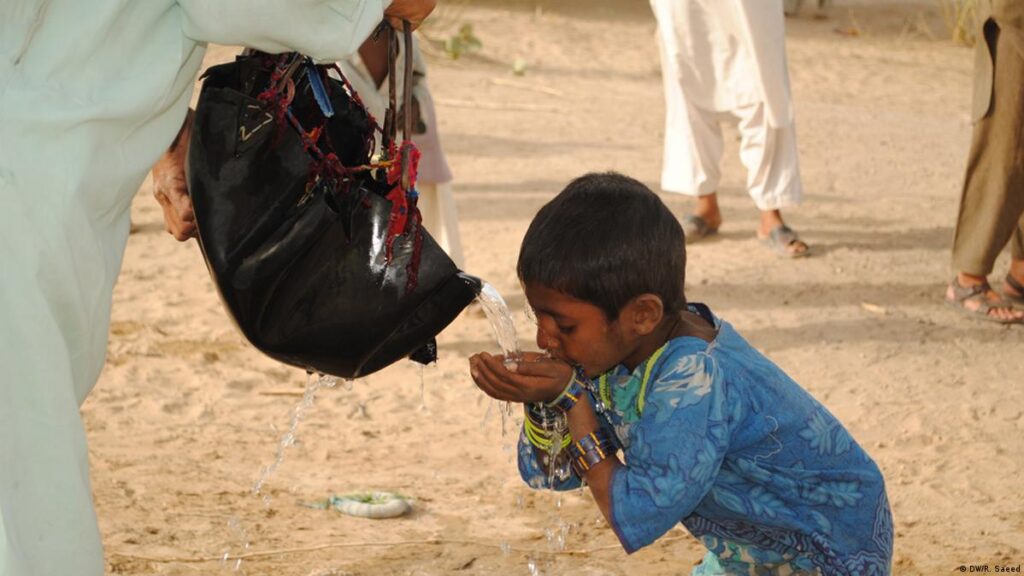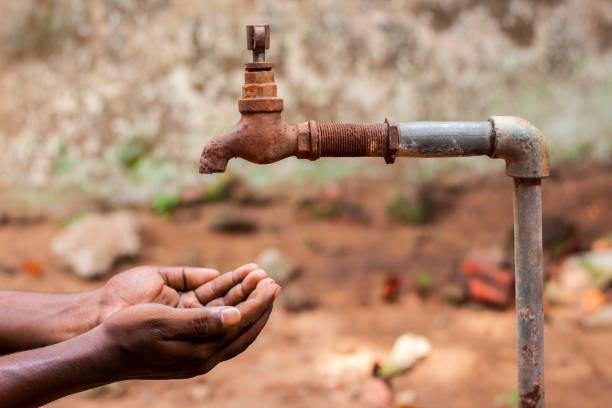Water Crisis
Pakistan faces severe vulnerabilities due to climate change, leading to water scarcity, extreme weather events, and dwindling crop yields. Amidst the ongoing Kharif season, the country confronts an imminent water shortage ranging from 27 to 35 percent, accentuated by recent floods. As one of the top ten nations impacted by global warming, Pakistan is hurtling towards becoming one of the world’s most water-stressed countries.

Water Security and Human Rights
The linkage between water security and human rights is crucial, with access to clean water deemed a fundamental entitlement. However, factors such as population growth, irresponsible water use, and climate-induced weather pattern changes contribute to escalating water scarcity globally, affecting both affluent and impoverished nations. The UN reports three billion people facing water shortages, with one billion experiencing hunger.
State of Water Management and Challenges
Pakistan’s water scarcity crisis is multifaceted, rooted in rapid population growth, climate change impacts, poor agricultural water management, inefficient infrastructure, and water pollution. The country ranks 14th among ‘extremely high-water risk’ nations, with over 80 percent of the population facing severe water scarcity for at least a month yearly. Groundwater over-extraction, mainly for irrigation, poses a severe threat, potentially leading to nationwide water scarcity by 2025.
“We never know the worth of water till the well is dry.”
-Thomas Fuller

Factors Affecting Water Security
Several factors compound Pakistan’s water security, including vulnerability to climate change, population growth surpassing 220 million, inefficient irrigation practices, inadequate water treatment, and waterborne diseases. The country’s dependence on the Indus River system, contributing to 95.8 percent of renewable water resources, leaves it vulnerable as 78 percent of water inflows come from outside Pakistan.
The Way Forward
Pakistan’s water crisis results from a governance failure rather than a true water crisis. The imperative lies in bridging the gap between policies, reforms, and implementation, demanding a detailed and actionable plan.
Leveraging technology for efficient water utilization is vital, emphasizing precision irrigation methods like drip irrigation. Replacing water-intensive crops with those demanding less water can revolutionize agriculture.
In conclusion, addressing Pakistan’s water crisis necessitates a comprehensive approach involving governance reforms, technological innovations, and a paradigm shift in agricultural practices. Failure to act not only jeopardizes Pakistan’s economic future but also underscores the global challenge of balancing water resources in the face of climate change.
I am a dynamic professional, specializing in Peace and Conflict Studies, Conflict Management and Resolution, and International Relations. My expertise is particularly focused on South Asian Conflicts and the intricacies of the Indian Ocean and Asia Pacific Politics. With my skills as a Content Writer, I serve as a bridge between academia and the public, translating complex global issues into accessible narratives. My passion for fostering understanding and cooperation on the national and international stage drives me to make meaningful contributions to peace and global discourse.










